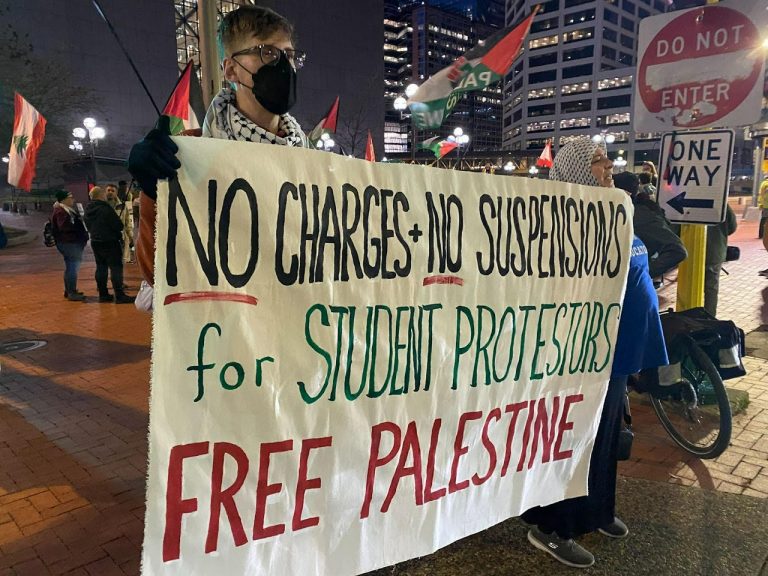Students And Faculty Denounce Genocide And Resist Repression
Today Brooklyn College showed the strength of student-worker unity.
And today Brooklyn College showed the brutality of university administrators and the NYPD.
On May 8 CUNY-PSC — the union representing 30,000 faculty and staff at the City University of New York — organized an action to support adjunct faculty, the most precarious and lowest-paid faculty who struggle to make ends meet each month.
At the same time, students organized an action in solidarity with Palestine to denounce the ongoing genocide, the bombardments, and the forced starvation of Palestinians by the brutal Zionist state of Israel, as well as CUNY’s continued investments in Israel.















